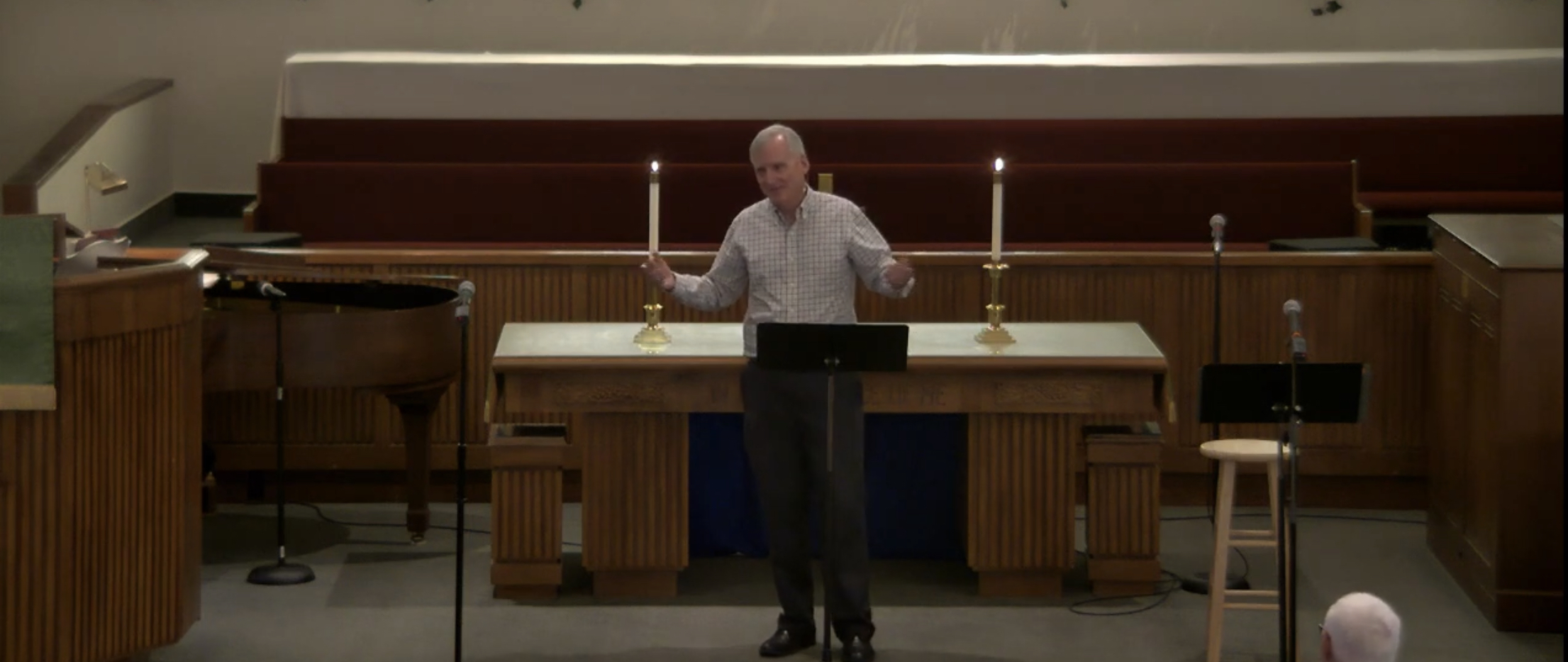
I have been preaching regularly of late, though I am not the regular preacher. A few years ago, as I thought about retirement, I was pretty sure I did not want to become an interim pastor, and I had lots of good reasons to steer clear of the title and the task. With a little bit of semantical trickery and the indulgence of a kind congregation, I have been able to avoid the fate I did not want. I am Moderator of the Session and “Transitional Coach.” I preach two or three times a month and I am helping in preparations for a pastor search. I hope to be out of a job by spring, Lord willing.
Don’t tell anyone, but I am enjoying it. I like the kind congregation and the preaching and coaching is quite a bit of fun.
I am not sure it is wise to call preaching fun, however. It is a task like no other and familiarity with it is a great danger. John Calvin called the pulpit “the throne of God, and from that throne he wants to govern our souls.” For Calvin, preaching and the sacraments were means of grace. “Wherever the Word of God is purely preached, there a church of God exists, even if it swarms with many faults,” he wrote.
Large church or small, pulpit or not, preaching is a dangerous art, and not to be taken lightly. Annie Dillard once described our casual approach to Christian worship as “children playing on the floor with their chemistry sets mixing up a batch of TNT to kill a Sunday morning.” The preacher is the one pouring the explosive liquids from one test tube to the other.
The preacher lives with the preaching text for the week and then seeks to speak its truth to the people in an honest and compelling way. The wise preacher knows that some honest sermons are not very compelling and some compelling sermons are not very honest. Week after week he or she pours all they have into preparing for Sunday’s sermon.
Uninterrupted for twenty minutes or more – so remarkable for a time of limited attention spans, preachers must speak carefully crafted and wisely chosen words lest they succumb to the sloppy ways of their careless personalities or the pompous ways of their sanctimonious selves.
The anonymous Puritan preacher prayed, “Keep me conscious all the while of my defects, and let me not gloat in pride over my performance.” (A Minister’s Preaching from “The Valley of Vision” – worth reading in its entirety.)
Maybe preaching isn’t fun, but it is satisfying to be doing what I once and perhaps still am called to do.
All of this is by way of wondering what a member of the congregation ought to say to the preacher after the sermon is preached. A new friend in the congregation where I am not the interim pastor asked the “what should I say?” question. Some long-ago pastor had told the congregation to neither compliment the pastor nor to thank the pastor for a sermon. Perhaps that pastor was aware of all preachers’ tendency to gloat in pride over their performance. But maybe also he left the congregation anxious about what to say and unable to be used by God to encourage him and the pastors that followed him in that pulpit.
So, what should you say to the preacher after the service? If he is wise, he will know not to take “nice job” or “great sermon” too seriously, but say it anyway. Better, if you say, “what you said about forgiveness was really helpful,” or “that part about God’s grace has me thinking in new ways,” or even “I am not sure I understood what you said about justice and holiness,” your voice might be the word of encouragement (or challenge) God intends to be heard.
In the meantime, I am enjoying not being an interim pastor.
